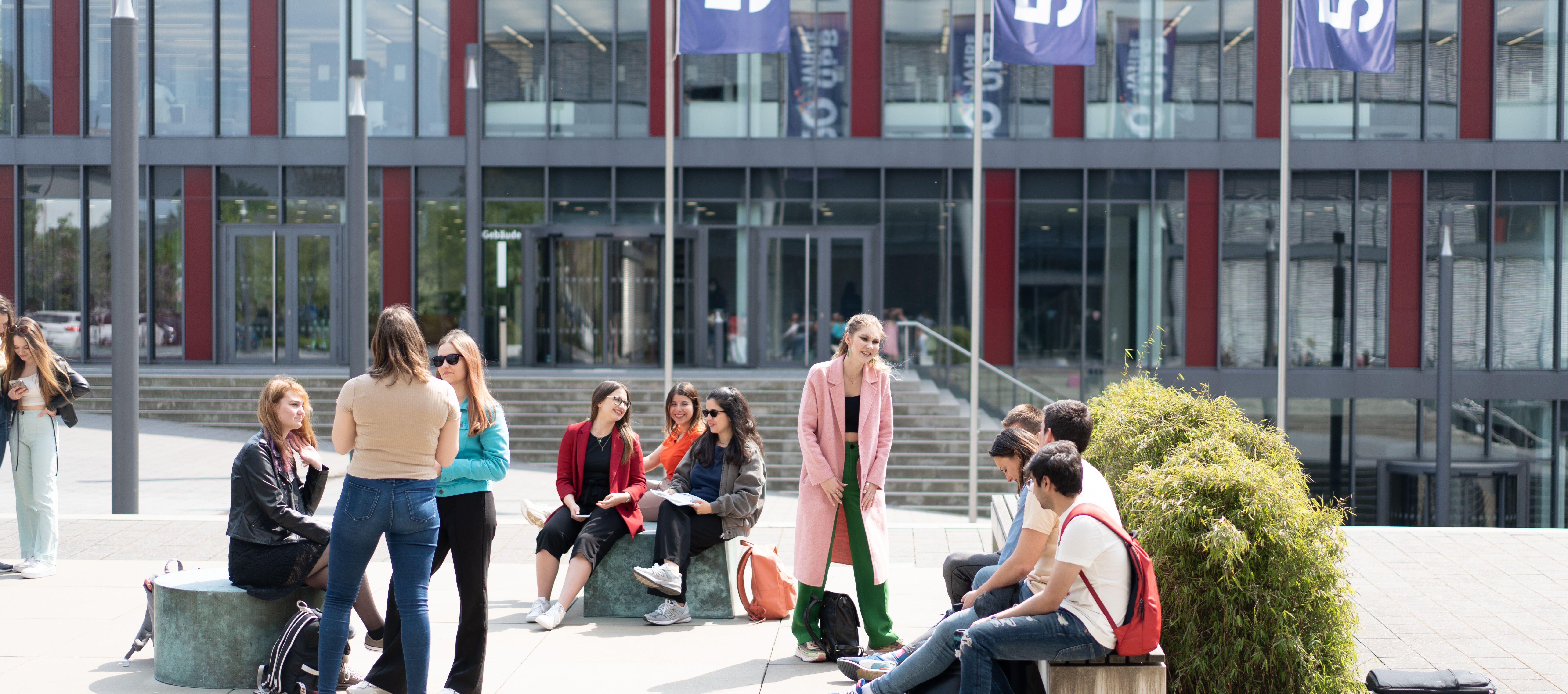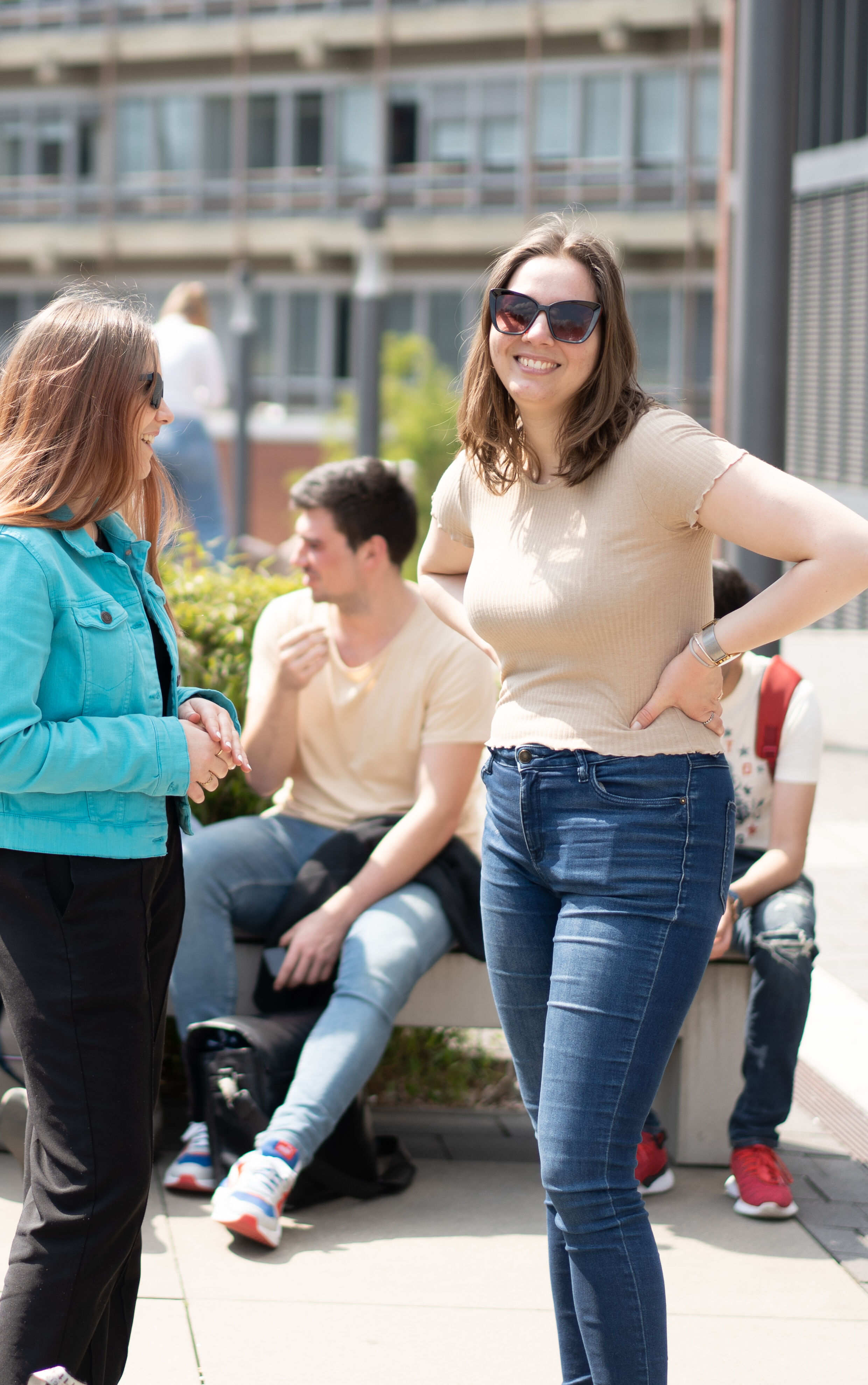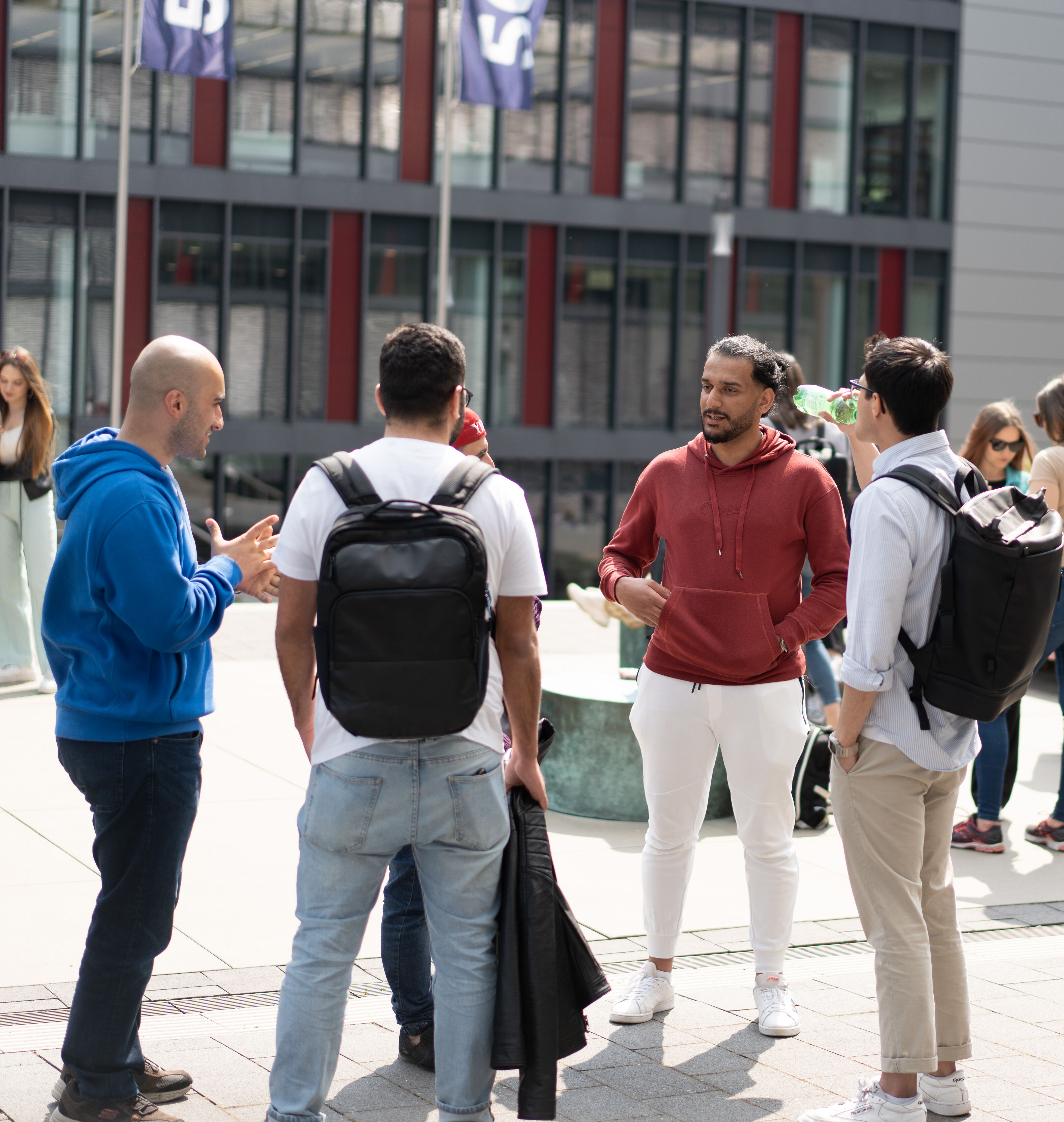Informatik
Master of Science (M.Sc.)
Overview
In a Nutshell
Unfortunately, you have selected an older course of studies that is not offered anymore. Please refer to the website of our course M.Sc. Computer Science for further information.
Unfortunately, you have selected an older course of studies that is not offered anymore. Please refer to the website of our course M.Sc. Computer Science for further information.
Unfortunately, you have selected an older course of studies that is not offered anymore. Please refer to the website of our course M.Sc. Computer Science for further information.
Study Contents
Future Perspectives
After graduation Master ?
Related Studies
Not quite right for you? One of our other study programs might be a better fit!
Campus life
In addition to study-related content, Paderborn University offers you a lot more: for those eager to learn, for those seeking exchange and for all those who want to think outside the box. Learn and improve your language skills at the Center for Language Studies and brush up on your software skills with the courses offered by doIT. The servicecenter-medien offers special media workstations where you can let off steam creatively, and the university sports program ranges from American football to Zumba. Get involved with the university radio station L'UniCo or the university newspaper universal and become part of one of the many project groups or initiatives.
Culture
A regular theater program at our Studionbühne, slams and readings, Big Band and university choir are just a few examples of our diverse cultural offerings. A special highlight is our AStA summer festival: up to 15,000 people make the pilgrimage every year to what is probably Germany's largest outdoor campus festival and enjoy the summer party atmosphere with numerous local student bands as well as well-known headliners on various stages.
Campus
Almost all of Uni Paderborn's buildings are located on campus. There are green meadows to relax in and plenty of places to eat and drink: Mensa Academica and Mensa Forum, the Grill|Café and Café Bona Vista. Everything is within easy walking distance. Our library is also centrally located and is a great place to study thanks to its good opening hours.
Accommodation
Living in accomodations close to campus is possible: The Studierendenwerk Paderborn offers you places in halls of residence directly on campus or in the immediate vicinity. But you will also find what you are looking for on the usual accommodation portals: Both in the immediate vicinity of the university and city center, as well as in the individual Paderborn districts.
Costs and financing
Everyday student life offers you plenty of opportunities to work alongside your studies. However, BAföG or a scholarship are also options that you can use to cover your costs.
Advisory services
We have the right contact point for every concern. For example, our advisory and service facilities are available to answer your questions about academic work, career orientation and goal setting, funding opportunities and many other concerns.
Our university is an open-minded university that also takes a clear stance on gender and diversity. We have been actively promoting equal opportunities and a gender- and family-friendly work and study culture for many years. This includes support for a better balance between studying and family life as well as support for students with health impairments.



Any questions?
Chat with us
The right contact for every concern
The Central Student Advisory Service (ZSB)
E-Mail: zsb@upb.de
Phone:05251/60-2007
You are in the right place with the following concerns
We support prospective students in their choice of studies and in their decision to study. In addition, we advise students in all phases of their studies, especially in phases of reorientation.
International Office
E-Mail: io-info@zv.uni-paderborn.de
You are in the right place with the following concerns
- How do I apply as an international student? Which prerequisites do I have to bring?
- What opportunities do I have to go abroad during my studies?
- Where can I get information about studying abroad (application deadlines and procedures, internships, scholarships)?
Students Council Mathematics/Computer Science/Informatics
You are in the right place with the following concerns
- What's this course of studies about?
- What does the "student-life" look like? What does a week at uni look like?
- How much do students like what they do at uni?
- What social activities and possibilities are there next to the formal university studies?
- What fields of specialisation do other students recommend?
- What happens in the first weeks at university? (Orientation week)
Student Service
You are in the right place with the following concerns
- Information and advice on application, admission and enrolment matters
- Processing of applications for change of degree programme, change of subject, leave of absence, exmatriculation, secondary enrolment
- Registration for the qualifying examination
- Health insurance matters
- Re-registration matters
Uni-Assist
You are in the right place with the following concerns
Please apply for this program, regardless of your nationality, via the Uni-Assist Online Portal, if you don't have a German University Entrance Qualification.
Bildungsinländer*innen
You are in the right place with the following concerns
If you don't have the German citizenship, but have received your university entrance qualification from a German school inside or outside of Germany (= Bildungsinländer*innen), apply for the program directly at the online portal PAUL of the admissions office. (Please initially supply a grade of 4,0; follow further instructions by email after registration in the online system.)
International Office
E-Mail: io-info@zv.uni-paderborn.de
You are in the right place with the following concerns
- How do I apply as an international student? Which prerequisites do I have to bring?
- What opportunities do I have to go abroad during my studies?
- Where can I get information about studying abroad (application deadlines and procedures, internships, scholarships)?
Examinations Management
You are in the right place with the following concerns
- Counselling on examination-related questions of the study programme
- Processing of admissions and registrations for examinations with limited repeatability
- Processing withdrawals from examinations due to illness
- Recording examination results
- Administration of study performance accounts, certificates of grades and module assignments
- Transfers to the current version of the examination regulations
- Issuing certificates, diplomas, diploma supplements and transcripts of records
- Issuing duplicates and certificates to internal and external university administrative offices
- Translated with www.DeepL.com/Translator (free version)
Service Centre for Studying with Disabilities
E-Mail: s-m-b@upb.de
Phone:05251/60-5498
You are in the right place with the following concerns
- Advice on all questions related to studying
- Procurement and rental of aids
- Barrier-free campus tours
- Provision of information on the barrier-free campus
- Advice on compensating for disadvantages
FamilienServiceBüro
You are in the right place with the following concerns
We support you in balancing your studies and family life.

